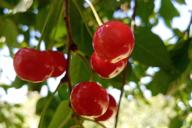Lots of regular things you don't pay attention to can actually benefit your garden plants and soil.
For instance, rotted leaves can be quite useful for gardeners and farmers, so you shouldn't get rid of it.
Here are a few benefits you should know about.
Nutrient Boost
When leaves fall from trees and begin to rot, they break down into something called "leaf mold."
This leaf mold is like a special plant food full of nutrients. As it blends into the soil, it provides essential elements like nitrogen and carbon.

These nutrients are fantastic for your plants because they help them grow strong and healthy.
Soil Health
Rotted leaves have a fantastic effect on the soil. They make it all crumbly and easy for plant roots to move through.
This is important because it allows the roots to find water and nutrients more easily.
The crumbly soil also helps to hold moisture, which is great for your plants.
Weed Defense
If you spread a layer of rotted leaves on top of the soil, it acts like a natural blanket. This blanket keeps the soil moist and cool.
It's like a little protection for your garden. This makes it harder for weeds to pop up and compete with your precious plants.
Home for Helpful Bugs
Rotted leaves create a comfy home for earthworms and other useful critters.
Earthworms help the soil by breaking down the leaves even more and improving its texture.
They also leave behind their waste, which is like a super fertilizer for your garden.
Money Saver
Rotted leaves are a wonderful way to save money in your garden. Instead of buying expensive chemical fertilizers, you can use this natural, free resource.
It's an eco-friendly choice that keeps your garden thriving without spending extra cash.
Conclusion
So, when you see those fallen leaves in your yard, don't toss them out. Collect them and let them turn into rotted leaves or leaf mold.
Then, spread this magic stuff in your garden to make your plants happy and your soil super healthy.
It's a simple, budget-friendly, and eco-conscious way to help your garden flourish.









